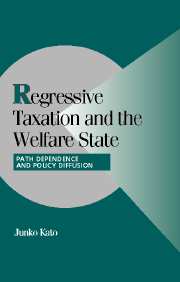Taxation, Wage Bargaining, and Unemployment
Why were European economies able to pursue the simultaneous commitment to full employment and welfare state expansion during the first decades of the postwar period? This book highlights the critical importance of a political exchange between unions and governments, premised on wage moderation in exchange for the expansion of social services and transfers. The strategies pursued by these actors in these political exchanges are influenced by existing wage bargaining institutions, the character of monetary policy and by the level and composition of social policy transfers.
- Studies unemployment in Europe 1950–1995
- Examines welfare state growth
- Discusses wage bargaining
Reviews & endorsements
"There is no doubt at all that this book will change the terms of the debate on the political economy of unemployment. It provides for the first time a simple political economic argument which purports to explain movements of unemployment rates both over time (long periods of time), and across advanced economies. From this perspective it is a huge achievement which Professor Mares manages to make look extremely simple. No other book has tried to explain in a unified way the long term and comparative trends in unemployment. A formidable achievement." David Soskice, Duke University
"The book makes a highly original attempt to account for the secular rise of permanent long-term unemployment in European countries, by incorporating the maturation of the welfare state as an important additional factor in current theories of wage formation. Linking collective bargaining and social policy in a novel way, Mares opens new perspectives on the politics of Social Pacts during the 1990s." Wolfgang Streeck, Max Planck Institute for the Study of Societies
Product details
February 2006Hardback
9780521857420
288 pages
236 × 157 × 20 mm
0.507kg
16 tables
Temporarily unavailable - available from TBC
Table of Contents
- Introduction: does the welfare state hurt unemployment
- 1. The economic and political consequences of welfare state maturation
- 2. A quantitative analysis
- 3. Sweden
- 4. Germany
- 5. Britain
- Conclusion: new social pacts in contemporary Europe.









